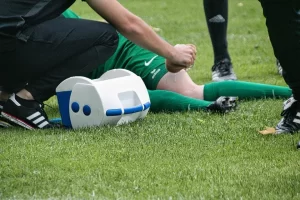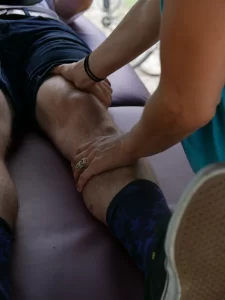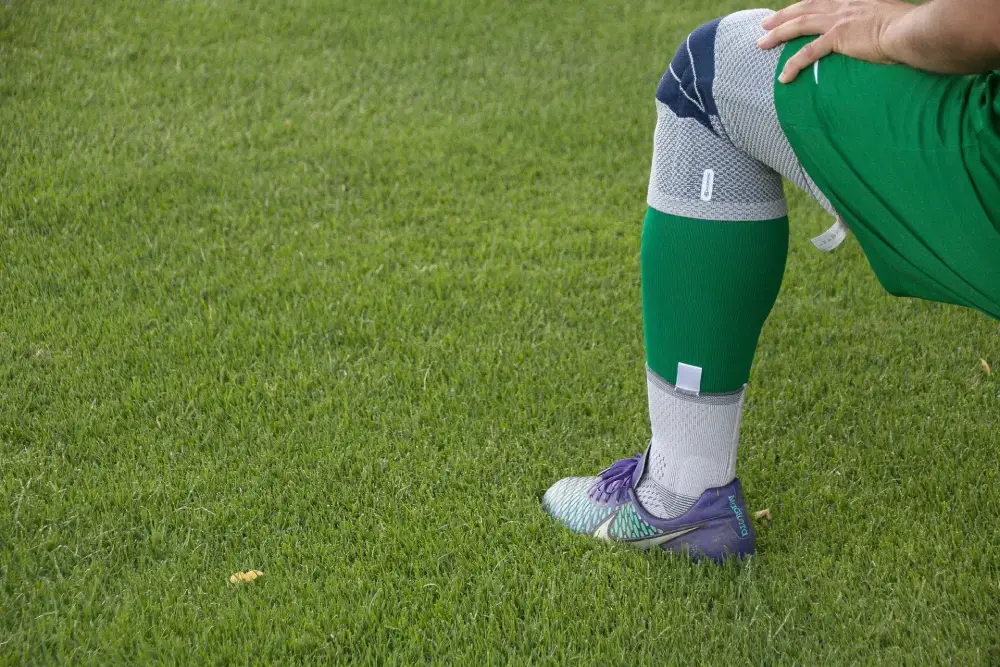Knee pain is a common condition that affects people of all ages. It can be caused by the impact of an injury, such as a ligament tear or torn cartilage. Medical conditions including degenerative conditions and infections can also cause knee pain. Pain over the anterior aspect of the knee is most commonly related to the knee cap(patella). Pain in the inside or medial aspect of the knee is commonly caused by meniscal tears, ligament injuries, and arthritis of joints. Many types of minor knee pain subside with self-care measures.
What causes Knee Pain?
ACL injury
Fractures
Torn meniscus
Knee bursitis
Patellar tendinitis
Loose body
Iliotibial band syndrome
Dislocated kneecap
Hip or foot pain
Structural deformities
Degenerative conditions
Depending upon what exactly is causing your knee pain, treatments may vary.

Medication and painkillers:
To help relieve pain and to treat the conditions causing your knee pain, such as rheumatoid arthritis or gout, your doctor may prescribe medications. In some cases, doctors may prescribe non-steroidal anti-inflammatory drugs to reduce pain, swelling, and inflammation. If your pain is severe, your doctor may prescribe strong painkillers. It has more side effects than standard painkillers. Not all injections can help reduce knee pain but can cause side- effects.
Surgical Approach:
If you have severe osteoarthritis with major cartilage erosion, rheumatoid arthritis, or other injuries, your doctor may suggest Knee Replacement Surgery. It can be a total knee replacement or a partial knee replacement surgery. Surgery or injections are not recommended for most types of knee pains. Knee replacement surgery has a lot of different risks. Which can be caused directly by the surgery or from the body’s reaction to the operation. In most cases, doctors recommend knee replacement surgery only if the physiotherapy is not reacting to the patient’s conditions as expected.
Ayurvedic Approach:
In Ayurvedic treatment to strengthen the knee bones and muscles, treatment is administered with herbal massages, Ayurvedic medication, yoga, and other strict diet plans. Yoga is a low-impact exercise which means it increases heart rate while minimizing the amount of stress on the joints. It can reduce chronic pain while improving mobility and physical fitness. Ayurveda has side effects and is a time-seeking approach for people with chronic symptoms. The U.S. Food and Drug Administration warns that the presence of metals in some Ayurvedic products makes them potentially harmful.
Physiotherapy:
Your doctor may recommend physiotherapy or different types of strengthening exercises based on the specific condition that is causing your knee pain. If you are physically active or in sports activities, you may need exercises to correct movement patterns that may be affecting your knees and to establish good technique during activity. Exercises are important to improve your joint flexibility and balance. In some cases, your doctor may suggest a steroid injection. If you have an injury that may require surgery, it’s usually not necessary to have the surgery immediately. Before making a decision, consider the pros and cons of both non-surgical and surgical reconstruction.

Advanced Physiotherapy:
An advanced Physiotherapy is an approach that combines clinical knowledge with advanced treatment modalities, lifestyle management, exercises, and nutritional guidance to ensure the best treatment outcome. In Advanced physiotherapy, IFT, TENS, Cryotherapy, and PCRRT are the electrical modalities used for pain management. Shockwave Therapy (ESWT) is an advanced modality for the treatment of musculoskeletal conditions and it’s very effective in ligament injury. ESWT uses sound waves (high amplitude pulses of mechanical energy) to break up infected tissues and stimulate the rapid healing process.
Our Joint Wellness and Rehabilitation Program in Kerala incorporates an advanced modality called Pulsed Cell Repair & Regeneration Therapy (PCRT). PCRT directs a series of magnetic pulses through injured tissue. Each magnetic pulse induces a tiny electrical signal that stimulates cellular repair and harnesses the body’s own ability to heal itself. This natural signal triggers the body to repair damaged or worn tissues and to maintain the health and proper functioning of the joint. As a result of aging, injury, or disease, this signal can get disturbed. When this occurs, the body is unable to repair the damage itself. This ends up in pain, inflammation, and loss of proper function in the joint. PCRT is unique in that it mimics the body’s natural signal, activating the normal healing process and stimulating the growth and repair of the damaged tissue.
The treatment session is between 12 to 18 sessions. Because of the regenerative process, the patient is advised to rest without any vigorous movements in the joint. If the patient is in pain will manage with other electric modalities and then with PCRT. After the PCRT sessions will start with a proper exercise program that helps the patient to become functionally independent.
You can contact us to know more. call us at +91 999 508 9400 to book an appointment.

